DARWIN council started 2020 in style, unloading a fleet of 150 bright orange eScooters into the city as a sleek new way to get around the tropical city.
But before long, council like many would be working on the run, or governing on the run as many aldermen called it.
While this was a necessity for some aspects of council work to ensure a stable economy to support businesses within the municipality, the change in mentality meant council was punching above their weight in terms of what they achieved, but also the processes they worked through to get there.
All in all, council adapted and did what they could to ensure they played their role in helping us all get through 2020.
ESCOOTERS
EScooters were the latest initiative helping make Darwin a smart Tropical city, under the Smart cities program which had seen numerous council jaunts overseas in years gone by.
These trips and the money ratepayers forked out had dominated headlines in previous years but with the global pandemic grappling global travel and international research on other smart cities all but complete, council would have to look inward to find new ways to improve.
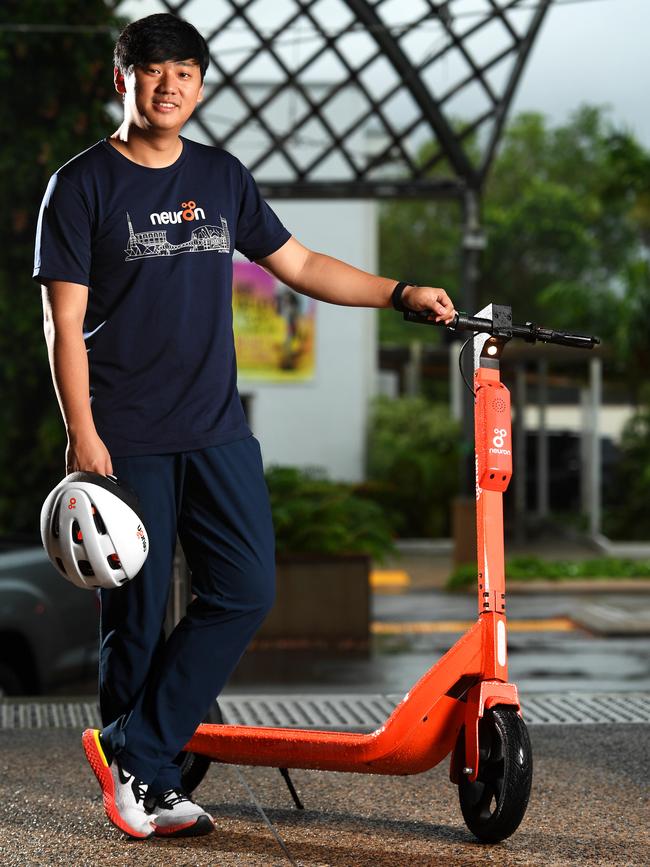
At the launch, Neuron chief executive Zachary Wang said he hoped Darwin would embrace the eScooters as the preferred mode of safe and sustainable transport in the city.
“We’re always looking for new ways to tempt people out of cars into more environmentally friendly and fun alternatives,” he said.
“It’s impossible to eliminate risk entirely but we are constantly innovating, often hand-in-hand with our city partners, to improve the safety of our riders.”
MALL RELOCATION
The Cavenagh St car park was transferred to Charles Darwin University for their controversial CBD project for $14.6 million – a handy sum of money with which council already knew what they wanted to spend.
Lord Mayor Kon Vatskalis indicated council would look to relocate their services to the mall and redo their home at Civic Park, which has aged well past its prime.
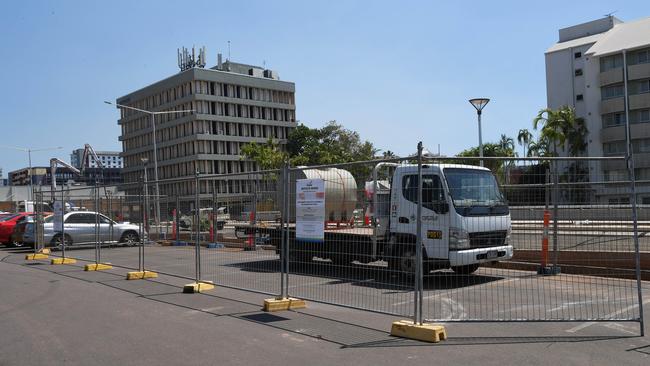
“Bringing more of council’s community services such as rangers and the library into a more central location will activate our CBD and create pedestrian traffic for our retailers and improve safety – it will mean more security presence,” he said.
“The new location will improve accessibility.
“The city is not only the university, it is State Square, the laneways and other things.”
Council still await the right pitch for their new home, needing a venue in the mall with parking space seeming to be the biggest priority and hurdle.
GREEN ARMY
The green army allowed for the fast tracking of a project the lord mayor has historically talked about dearly – greening and beautifying Darwin’s streetscape.
Popular strips and verges across the city, in Nightcliff, Casuarina, Wagaman, and Larrakeyah were revitalised with fresh plants and a trendy new look. But the biggest positive out of the army was the jobs and work it created for many who had been left without an income due to the pandemic.
For single father of three Lowell Lewis, it was a saving grace after becoming of coronavirus’ plight on the economy.
“There was a good three weeks where I didn’t know what I was going to do. I’d been let go from (my job_ and was trying to keep lights on and the kids fed,” he said.
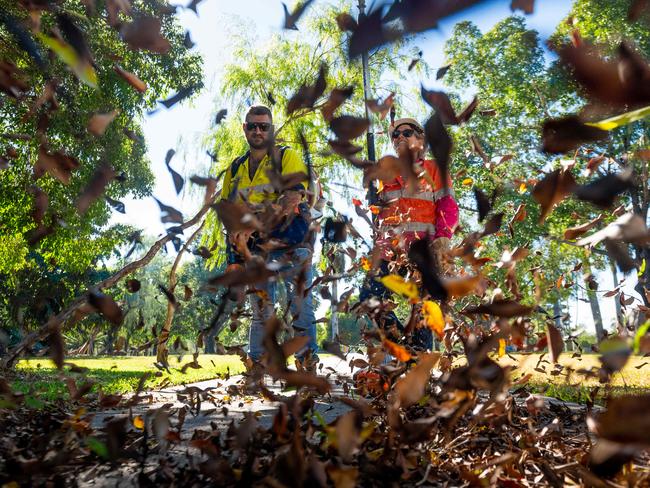
“One day I got a call saying: ‘Would you be interested in having a go with the local council?’ There’s a lot of walking and a fair bit of lifting but it’s very rewarding – I’m losing weight and getting a good tan going, we’ve had a few days there where I’ve thought: ‘Wow, I’ve earnt the money today’.”
MyDARWIN
Darwin council led the way in the economic fightback of coronavirus which had begun to cripple business across the Territory and the country.
Lord Mayor Kon Vatskalis said the stimulus package would help businesses rebound from the local impacts of the virus pandemic. “The whole point of it is to encourage people to spend money in Darwin,” he said.
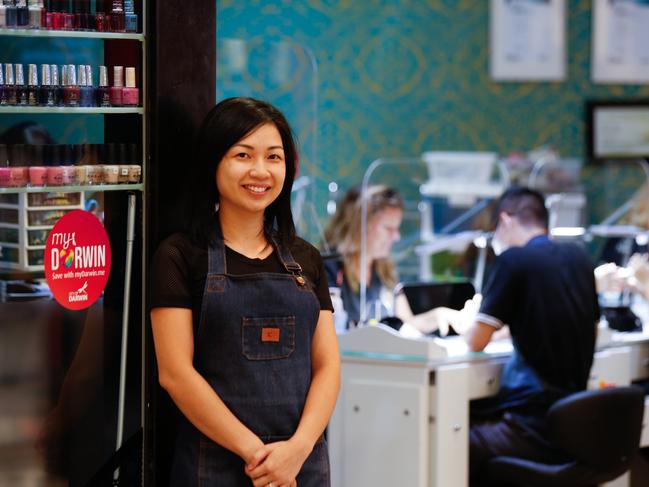
“Underpinning the stimulus package is the understanding that by supporting local businesses we support the local economy and local jobs.”
They proved to be a roaring success, with a total of six rounds of the MyDarwin scheme being launched, including one still to come in January, with each dollar invested by council and the government generating about $6 into the economy.
The idea was then parcelled up and shared with other councils across the Territory while the scheme became the inspiration for a number of other response to coronavirus across the country.
OVAL LIGHTS
The start of the NTFL season saw a massive milestone passed for council, with the season opener between Waratah and Palmerston the first ever game at Gardens Oval under lights.
The project was one which Lord Mayor Kon Vatskalis said would have a great benefit to the community, despite concerns of light pollution.
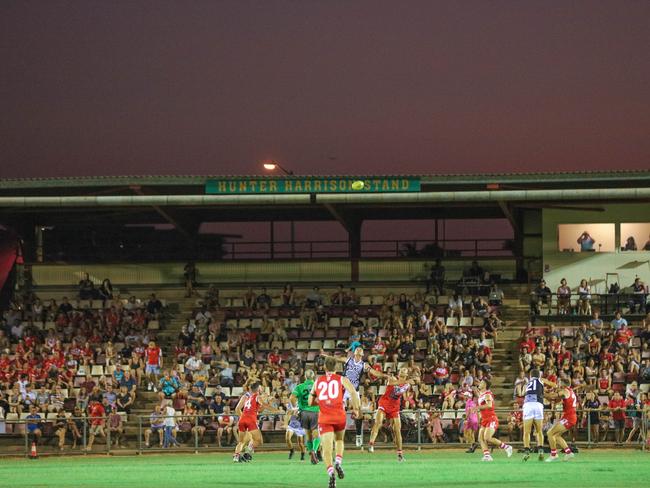
“This project will enable sports training and matches to be played at cooler times of the day and provide opportunities for increased participation,” he said.
“The lights put in place and their orientation will not affect the neighbouring community but will provide the necessary infrastructure for people who want to use it after hours.”
Nightcliff and Bagot Ovals followed a few weeks later, with little complaints made from Nimbys initially opposing the project since the switches were flicked on.
RSL SAGA
Council found themselves somewhat unfairly at the centre of the Cenotaph carpark saga, with questions fired to them over whether they would allow a proposal to see the RSL build a new clubhouse at the Cenotaph car park site.
The big problem from council’s end was on paper, they knew nothing about the proposal. Nothing had officially been tabled (that wasn’t in confidential sitting) until October and even then, it was taken off the council agenda in a suspicious vote almost immediately, with elected members seeking more information.
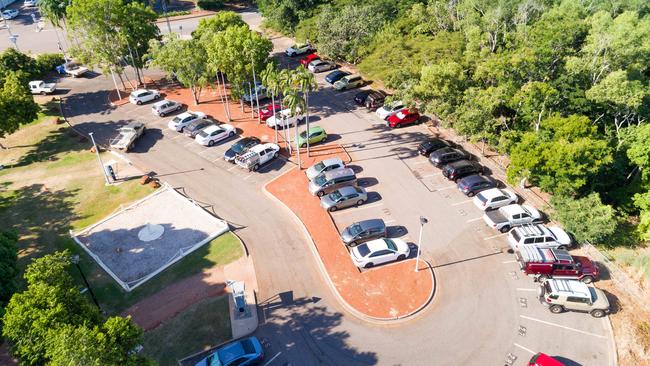
But before it could be returned, a number of elected members made a successful move to green over the car park to prevent and protect a possible sacred Indigenous site from being forever covered by a licensed venue.
The RSL now looks set to rebuild at their original site on Cavenagh St, which was burnt down in 2018 and fully demolished later this year.
EBIKES
After a successful 10 months, council announced not only a 12 month extension to the trial but they also unrolled a fleet of 150 eBikes to compliment the scooters. The ultimate plan would be to have eBikes as an accessible way for council to get from the suburbs into the city before using the scooters inside the CBD grid, going from venue to venue.
But as the announcement was made, the worst video of an eScooter stack aired, raising questions over safety. An incident report revealed incidents spiked when our pubs and licensed venues were at their busiest.
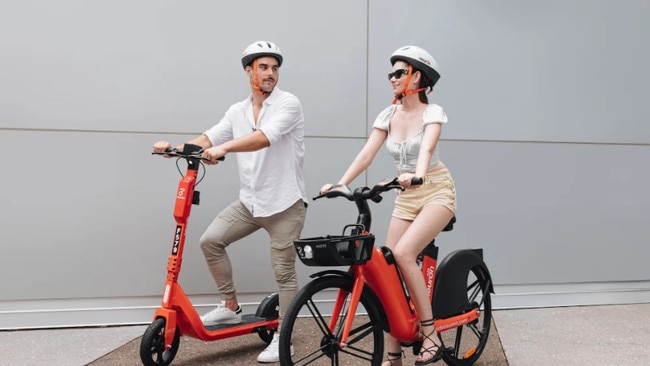
Meanwhile Maurice Blackburn came forward with serious concerns over the lack of cover Neuron’s insurance provided, in particular to bystanders and pedestrians who may have no involvement with an eScooter or eBike and be struck.
But Neuron launched a Christmas safety campaign, with new incentives also introduced to encourage safe riding and polite scooter etiquette, such as using dedicated parking zones.
THIS YEAR
With an election coming up, you can expect council tensions will only grow in the early parts of this year, with existing elected members and potential candidates doing what they can to show they deserve a spot on council come the August election.

Add your comment to this story
To join the conversation, please log in. Don't have an account? Register
Join the conversation, you are commenting as Logout
Gaps in Darwin maternity services highlighted through stories of loss
Darwin families are making plans to leave the NT as shocking testimonies reveal gaps in maternity care, with some mothers seeking help four times before tragedy struck.
Three Territorians, one lifesaving legacy as RLSS turns 60
From tea with the Queen to fighting for free swimming lessons, Daphne Read fought for six decades to stop NT kids from drowning while RLSS member Michael De Silva nearly did.